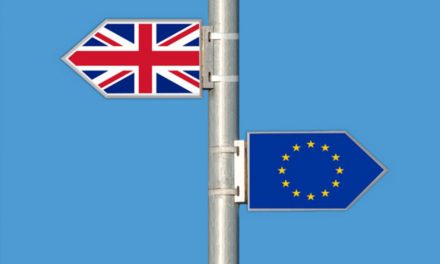Last April, the European Commission presented the 2013 EU’s draft budget – €150.9 billion in commitments appropriations that represents an increase of 2% comparing to the 2012 budget, and €137.9 billion in payments appropriations, which represents an increase of €9 billion or 6.8% on the 2012 budget. The European Commission has therefore ignored the calls from several Member States, including the UK, for an EU budget freeze.
Such considerable increase has been justified as necessary to meet prior commitments, particularly projects in the area of EU regional policy. However, as Mark Hoban, said “At a time when Governments across Europe are making difficult decisions on public spending, a 6.8% increase in EU spending in 2013 is completely unacceptable”. The Government noted, “that the proposed increase would impose unaffordable costs on taxpayers in the UK and other Member States”. In fact, the Commission’s proposal would, obviously, entail an increase in the UK’s contributions to the EU budget, which has been estimated to be around €1 billion more than in 2012.
The UK cannot veto the Commission’s proposal, hence, as Mark Hoban noted, “the Government's success in the 2013 negotiation will depend on corralling a group of like-minded Member States around a strong position on the 2013 EU Budget.” Several Member States, including Germany and France, have been showing their opposition to the proposed increase in the EU’s 2013 budget. Nevertheless, just the Netherlands and Sweden have backed the deep cuts proposed by the UK.
Although the Council has reduced the amount of the Commission proposed draft budget there is still an increase of 2.79% compared to 2012. The Council should have proposed lower figures as the UK has suggested. In fact, the UK, the Netherlands and Sweden voted against such proposal, but they did not have enough votes to block such compromise, which has been described by the Government as “unhappy.”
The Council has agreed to a budget of EUR 132.70 billion in payments and EUR 149.78 billion in commitments. Compared to 2012, whereas the European Commission has proposed for an increase of €3,031.5 in commitments appropriations and €9 billion in payments appropriations, the Council's position provides for an increase of EUR 1.88 billion and EUR 3.61 billion respectively. The Council has therefore called for reducing the payments by a total of EUR 5.23 billion and the commitments by EUR 1.15 billion. Hence, because of QMV, the Government is no succeeding in ensuring deep cuts to the EU’s 2013 budget.
It is important to note that the European Parliament has always sought a bigger budget for the EU than that proposed by the Commission and Member States. Therefore, the vote at the European Parliament to increase the EU’s 2013 budget did not come as a surprise. On 23 October the MEPs proposed, therefore, a total of €137.9 billion in payments and €151.15 billion in commitments. The European Parliament rejected the cuts made by the Council, and restored funding lines as proposed by the European Commission. They proposed an increase in payments of 6.82% as compared to 2012's budget and an increase of commitments of 2.2%, requiring even more money from taxpayers.
The Council did not approve the European Parliament’s amendments for the 2013 EU draft budget, consequently a conciliation committee was convened. A three-week conciliation period has therefore started on 24 October. Such committee is composed of Council representatives and representatives of the European Parliament aiming at reaching an agreement on a joint text. Fierce negotiations between the Council and the European Parliament are, therefore, expected.
If the conciliation committee does not agree on a joint text within 21 days, the Commission shall submit a new draft budget. If the EU 2013 budget is not approved before the end of the year, spending would have to be frozen at 2012 levels. And, Brussels would have to work under the system of the "provisional twelfth." It is, therefore, essential for the UK to achieve a blocking minority in the vote on the conciliation agreement.
It is important to recall that last year, in exchange for the so called limited increase, the member states also committed to accept requests for additional payment appropriations through amending budgets, in order to avoid any shortfalls. In fact, there is a Joint Statement on payment appropriations by the Council and the European Parliament where they asked “the Commission to request additional payment appropriations in an amending budget if the appropriations entered in the 2012 budget are insufficient to cover expenditure …” It is important to mention that the European Commission has recently tabled draft amending budget no 6 for 2012 to fill a gap of €9 billion between the payments foreseen in the current budget and the commitments in areas such as research, the Erasmus student exchange programme and EU social and development funds. The EU Member States have been asked to pay further contributions to make up for shortfalls in this year’s EU budget.
The Council noted, “that the increase proposed today by the Commission by far
exceeds the reduction in payments on which the European Parliament and the Council
agreed for the 2012 EU budget which was limited to EUR 3.58 billion compared to the Commission's draft budget.” On the other hand, Janusz Lewandowski, said, "I have repeatedly warned that constant cuts in the proposed budget will eventually create a big problem. This time has come. Our situation does not allow us to deliver on our agreed commitments,". The European Parliament has endorsed the Commission’s proposal for a €9 billion increase on this year's budget, but the Council still has to establish its position. The Conciliation Committee will also discuss draft amending budget no 6.

